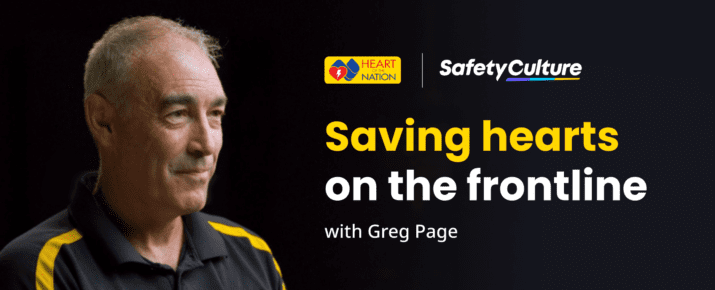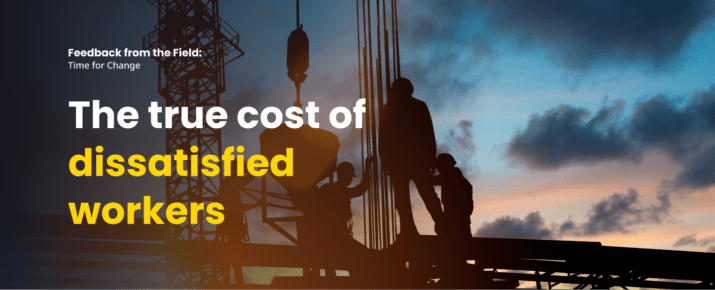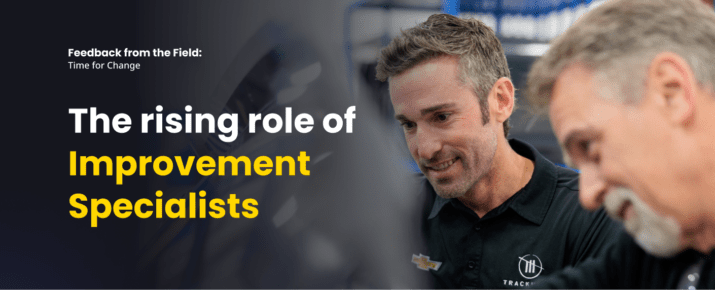Meet Anita Johnson: Regional Safety Manager and advocate for women in construction
Ask The Experts | Feedback From The Field | By | 6 Apr 2022 | 3 minute read

Here at SafetyCulture, we’re championing the disruptors. The people who don’t do things by the book, who don’t blindly accept the status quo.
Anita Johnson, Regional Safety Manager at Performance Contracting Group, Inc. (PCG) is one of 9 safety managers across the US and manages branches in the NW Region for the interior division, providing safety insight for thousands of people.
She bravely steps forward as an example for female representation in the safety field and proactively secured a financial grant for female harnesses that have improved safety for women at PCG across the US. When COVID hit, she had to be extremely adaptable in her use of SafetyCulture (formerly iAuditor), working with hundreds of employees to keep people safer using real-time communication.
Anita’s been in Health and Safety for as long as she can remember. In total, she’s spent 29 years in the healthcare and safety industry.
It’s a traditionally male-dominated field, which can make bringing the female perspective tough. Often, she’s the only female in meetings, so it can be difficult to make sure her voice is heard – which can create some challenges.
“People have a perception in their head about what safety should look like, so as a female in the field I have to change that perception.” – Anita

Anita has enjoyed a unique vantage point and perspective in her approach to safety. When leading others, she’s learned you have to be two things – honest and collaborative. You have to be fully who you are, and also involve your colleagues in the conversation. This way, they’ll be much more open to listening to what you’re saying.
By asking questions and involving the front line in the process, you’ll find a better solution. Especially when working in compliance, it’s important that decisions are made as a team.
She has some advice for aspiring female leaders in the industry: “Be confident in who you are, be a sponge, listen to everything around you. Ask a lot of questions, use the field as your team – they are your advocate and you’re their advocate. Don’t be afraid if you need to ask a question, and be honest!”.
Speaking up on behalf of women in the industry
When Anita noticed traditional safety harnesses were ill-fitting for female employees in the field, she challenged the status quo. She received a grant to purchase harnesses designed to be fastened and worn comfortably by women. PCG deployed them across the United States. She received some great feedback from women in the field on the efficacy of the design. Now, safety is improving for women nationwide and job sites are becoming more inclusive.
Her prior experience in the tunneling industry led her to speak up on behalf of women in construction. She’s presented, participated in safety videos, and stepped forward as a female representative in the industry.
She says, “Safety is not anything I intended to get into. We need to do more recruiting of women in this sector. We need a better balance in the industry. Females can bring a different perspective to the table.”
Championing real-time inspection software to stay COVID-safe
Anita and the PCG team use SafetyCulture (formerly iAuditor) to collaborate, listen to, and learn from employees working in the field. They’re creating buy-in for compliance by making safety a team effort and a part of the company-wide conversation.
They regularly use SafetyCulture (formerly iAuditor) to report on safety and quality across job-sites nationwide, but when COVID-19 struck, PCG expanded its use to help manage new protocols.
Anita was tasked with helping deploy SafetyCulture (formerly iAuditor) throughout her region. With over 1,000 employees and 2 million man-hours worked regionally, this continues to be a challenge and time is of the essence.
Anita designed inspection templates to be time-saving. Before SafetyCulture (formerly iAuditor), it was time-consuming to get information to the right people quickly, but iAuditor streamlined the process. Using Actions and Analytics, she ties the platform usage into the Northwest safety recognition program and performance appraisals. The team takes photos during inspections to provide evidence of why things are happening in a particular way.
To boost adoption, SafetyCulture (formerly iAuditor) was integrated with the IT and HR infrastructure, which became especially useful when it came to managing a crisis situation like the pandemic.
Immediately, the team shifted to using SafetyCulture (formerly iAuditor) to manage company safety protocols – analyzing employee’s mask wearing, use of hand sanitizer, and social distancing. It was simple to build a COVID questionnaire suitable for the company’s needs, operating in real time. If they were ever questioned about it, they could pull up a report to show exactly how they were staying compliant.
Saving time and energy with digital checklists
Before SafetyCulture (formerly iAuditor), Anita relied on paper checklists. Not only was it cumbersome, but posed additional risk now COVID-19 was around.
Now, team members in the field can quickly complete inspections, and within seconds, relevant information and reporting is made available to the right people.
SafetyCulture (formerly iAuditor) has helped create an awareness of hazards and areas for improvement in the field. This additional visibility allows Anita and her team to drill into the details of what’s actually happening on site, compare data, and identify trends. The safety team has created a weekly meeting to investigate issues identified to see if they’re systemic, or just a one-off.
Important Notice
The information contained in this article is general in nature and you should consider whether the information is appropriate to your specific needs. Legal and other matters referred to in this article are based on our interpretation of laws existing at the time and should not be relied on in place of professional advice. We are not responsible for the content of any site owned by a third party that may be linked to this article. SafetyCulture disclaims all liability (except for any liability which by law cannot be excluded) for any error, inaccuracy, or omission from the information contained in this article, any site linked to this article, and any loss or damage suffered by any person directly or indirectly through relying on this information.





